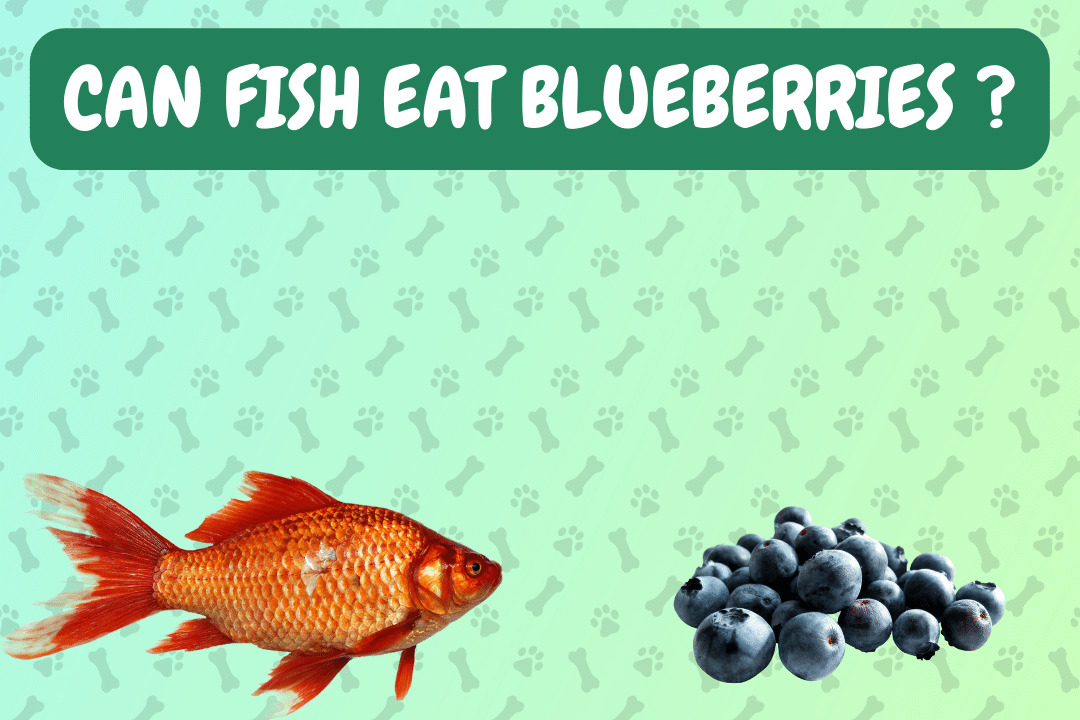Yes, fish can eat blueberries, but it’s essential to offer them in moderation and prepare them appropriately to avoid water quality issues.
Table of Contents
Introduction
When it comes to feeding our aquatic friends, it’s crucial to know which foods are safe and beneficial for them. While fish typically have specific diets, there are some human foods that can be incorporated into their diet in moderation. In this article, we’ll explore whether can fish eat blueberries, discuss their nutritional value, potential risks, safe serving guidelines, and provide expert insights to ensure the well-being of your aquatic companions.
Nutritional Value
Blueberries are a nutritious fruit rich in vitamins, minerals, and antioxidants. They contain vitamins C and K, as well as dietary fiber. While these nutrients are beneficial for humans, fish have different nutritional needs.
Potential Risks
Feeding fish excessive amounts of blueberries can lead to water quality issues in their tank or pond. Blueberries can release organic matter and sugars as they break down, which can contribute to an increase in ammonia and nitrite levels. Elevated ammonia and nitrite levels can harm fish and other aquatic life.
How to Serve Safely
To serve blueberries safely to fish, it’s essential to offer them in small quantities and only as an occasional treat. Rinse the blueberries thoroughly to remove any pesticides or chemicals that may be present on the fruit’s surface. You can then chop the blueberries into smaller pieces to make them easier for fish to consume.
Serving Suggestions
Blueberries can be served to fish as a special treat, but they should not be a significant part of their diet. Fish should primarily be fed a balanced and species-appropriate commercial fish food to meet their nutritional needs. Consult with a veterinarian or aquatic expert for guidance on the best diet for your specific fish species.
Special Considerations
Consider any special dietary restrictions or allergies that may apply to your fish species. Different types of fish have varying nutritional requirements, so it’s essential to research and provide a diet that aligns with their needs.
Expert Opinion
Experts in aquaculture and aquarium care generally agree that blueberries can be offered to fish in moderation as a treat. However, it’s crucial to be mindful of water quality and not overfeed them with blueberries or any other human foods.
Conclusion
In conclusion, fish can eat blueberries, but it’s essential to offer them sparingly to prevent water quality issues. Blueberries can be a delightful and nutritious addition to their diet when used as an occasional treat. However, it’s crucial to prioritize their primary diet of species-appropriate commercial fish food to ensure they receive the necessary nutrients for optimal health.
FAQ
Q1: Can all types of fish eat blueberries?
A1: While many types of fish can enjoy blueberries as a treat, it’s essential to consider the specific dietary needs of your fish species. Some fish may benefit from blueberries more than others.
Q2: How often can I feed blueberries to my fish?
A2: Blueberries should be offered as an occasional treat, not as a regular part of their diet. Feeding them once or twice a week in small quantities is generally safe.
Q3: Can I feed frozen blueberries to my fish?
A3: Frozen blueberries can be offered to fish after thawing and rinsing them thoroughly. Ensure they are not frozen when given to fish, as the cold can shock them.
Q4: Are there any other fruits or vegetables that fish can eat?
A4: Some other fruits and vegetables that can be suitable for fish include peas, spinach, and zucchini. However, it’s crucial to research the dietary preferences of your specific fish species.
Q5: Can feeding fish blueberries improve their color?
A5: Blueberries are not typically used to enhance fish coloration. Specialized fish foods designed for color enhancement are more effective for this purpose.
Q6: Can blueberries replace commercial fish food for my fish?
A6: No, blueberries should not replace commercial fish food. Commercial fish food is formulated to provide the specific nutrients that fish need for their health. Blueberries should be considered an occasional treat only.
Q7: Can blueberries help with constipation in fish?
A7: Blueberries are not a remedy for constipation in fish. If you suspect that your fish is constipated, consult with a veterinarian or aquatic expert for appropriate treatment and dietary adjustments.
Q8: Can I offer blueberries to both freshwater and saltwater fish?
A8: Blueberries can be offered to both freshwater and saltwater fish as a treat, but always consider the specific dietary requirements and preferences of your fish species.
Q9: Can feeding fish blueberries improve their overall health?
A9: While blueberries offer some nutritional benefits, they should not be relied upon as a primary source of nutrition for fish. A well-balanced commercial fish food is essential for their overall health.
Q10: Can fish develop allergies to blueberries?
A10: Fish can develop sensitivities or reactions to certain foods, but allergies to specific fruits like blueberries are not common. If you notice any adverse reactions in your fish after feeding them blueberries, discontinue offering them as a treat.
For more Fish food articles, read our blog.
Hello! I’m Max Walley, a pet enthusiast who knows a lot about what our animal buddies can munch on and what’s a no-no. With ‘canpeteat.it,’ I’m here to help pet owners make smart food choices. Come with me as we dive into the world of pet nutrition, discovering what keeps our furry pals joyful and in tip-top shape. Let’s explore this adventure together!


